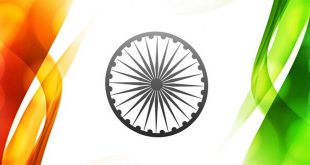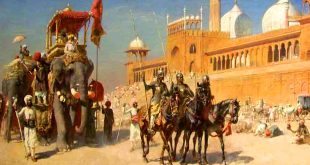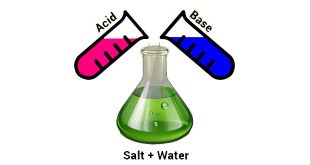Question: How has communication developed over the years? Answer: Communication has developed over the years as many technologies like mobile phone, internet etc have been developed by which people who live far away can communicate with each other. Question: How can you categorize the mean of communication? Answer: Means of communication: …
Read More »NCERT 7th Class (CBSE) Social Science: State Government
Question: Why is the legislative council called a permanent body? Answer: The legislative council is called a permanent body because it cannot be dissolved. Every second year one-third of its member who complete their term retire. Question: How are representatives to the Vidhan Sabha elected? How have the territorial constituencies …
Read More »NCERT 5th Class (CBSE) Mathematics: Large Numbers
Large Numbers We use only 10 digits in our place value system to write any number, no matter how large it is. The value of the digit depends on its place in the number. Can you read the number in the following sentence? India is the seventh largest country in …
Read More »NCERT 7th Class (CBSE) Social Science: The Sultanate Period
Question: Who was Raziya Sultan? Why did the nobles oppose Razia? Answer: Raziya Sultan was daughter of Shams-ud-din Iltutmish who succeeded her father. Nobles and Ulema could not accept Raziya as Sultan as they founded humiliating to work under her. Question: Name two Persian customs introduced by Ballan. Why were …
Read More »NCERT 5th Class (CBSE) Social Science: Temperature Zones of the World
Question: What are the factors that effect the climate of a place? Answer: The factors that effect the climate of a place are: Latitudes or distance of a place from the equator Altitude Distance from the sea Wind Humidity Question: On what basis has the earth been divided into temperature …
Read More »NCERT 7th Class (CBSE) Science: Acids, Bases and Salts
Question: Acids are not stored in metal containers. Why? Answer: Acids can corrode metals like aluminium and iron due to their corrosive nature. That is why acids are stored in glass containers and not in metal containers. Question: Why do different substances have different tastes? Answer: Different substances have different tastes …
Read More »NCERT 7th Class (CBSE) Science: Acids, Bases and Salts – Quiz
NCERT 7th Class (CBSE) Science: Acids, Bases and Salts – Quiz 31 Multiple Choice Questions related to NCERT 7th Class (CBSE) Science: Acids, Bases and Salts – Quiz: Acids: Substances that taste sour. Organic Acid: Acids that are naturally obtained from plant and animal sources. Mineral Acid: Acids that are derived from …
Read More »NCERT 7th Class (CBSE) Science: Heat and Temperature
Question: What is heat? Answer: Heat is a form of energy, entry or exit of which correspondingly increases or decreases internal energy of a body when no work is done on the body or by the body. Question: What is temperature? Answer: The degree of hotness and coldness of a body is called temperature of body. Thermometer …
Read More »NCERT 5th Class (CBSE) Social Science: Our Environment
Question: What are the four spheres of the environment? Answer: The four spheres are: Biosphere Atmosphere Hydrosphere Lithosphere Question: List the importance of the hydrosphere? Answer: The hydrosphere is the sphere of water and is very important for the existance of life on earth. It includes all the water bodies …
Read More »NCERT 7th Class (CBSE) Science: Chemical and Chemical Changes
Question: Define the following: Valency, Atomicity, Chemical Equation, Rusting, Galvanization, Crystallization. Answer: Definitions are as follows: Valency: The combining capacity of atoms of an element with the atoms of other elements is known as valency. Atomicity: The number of atoms that make up a molecule of an element is known …
Read More » Class Notes NCERT Solutions for CBSE Students
Class Notes NCERT Solutions for CBSE Students








